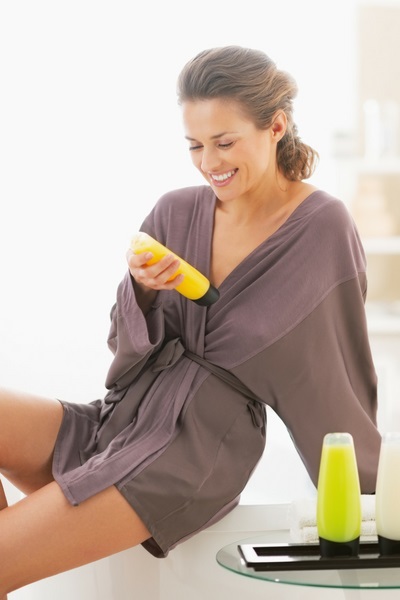Valentine’s Day & the Beauty Industry: The Chemicals You're Gifting To Your Loved One
Posted by Naturally Safe Cosmetics on 6th Feb 2018
Yes, it’s here again: Valentine’s Day! That LOVE-ly day of the year when we celebrate all things romantic. Of course, there are many ways to show your love and appreciation for that special person – going out for a delicious dinner at a nice restaurant, watching a movie together at the local cinema or just making the effort to spend some quality time together. In our home, these activities often include the kids which is perhaps not quite so romantic but definitely filled with love and fun times.
Of course, another aspect of Valentine’s Day is gift giving. The list of possible gifts is endless and beauty products are often a popular choice, whether you’re talking about cosmetics or pampering products for the body. I know I simply love receiving these types of gifts.
But I wonder if you’ve ever really thought about what is actually in those products you’re giving to a loved one? In this article, I’m going to take a just a handful of ingredients commonly found in cosmetics and personal care products and explain why they can pose potential risks to our health. Here we go . . .
Toluene
Toluene is a common nail polish ingredient. It is a petrochemical solvent
and a potent neurotoxicant. It can act as an irritant affecting breathing
and cause nausea. Toluene can also cause developmental damage to the fetus for pregnant
women exposed to vapours. Studies have also linked it to immunotoxcity and a
possible link to blood cancer. Nasty!
Formaldehyde
Formaldehyde is a chemical used in manufacturing and chemical industries and a
preservative in many personal care products. Numerous studies have shown a link
between formaldehyde and various cancers. It has also been linked to contact
dermatitis. Some products contain formaldehyde itself while others contain ingredients (usually preservatives) that are classified as ‘formaldehyde
releasers’ – that is, chemical compounds that release formaldehyde as they
decompose in a product’s formulation. These releasers include chemicals like quaternium-15, DMDM
hydantoin and imidazolidinyl urea, just to name a few.
Propylene Glycol
Propylene Glycol is the active ingredient in antifreeze and is frequently found in many lotions, deodorants,
makeup products and hair care products. It is a commonly used skin conditioning
agent and has been associated with irritation and allergic contact dermatitis,
as well as organic system toxicity.
Parabens
(Methylparaben, Propylparaben, Butylparaben, etc)
Parabens are preservatives used in many personal care products - just about
everything in fact - along with the food
and pharmaceutical industries. Because parabens mimic oestrogen, they can
potentially disrupt the endocrine system. They have also been linked to
allergies and breast cancer.
Petrolatum, mineral
oil, paraffin
These petroleum by-products are derived from crude petrol or oil. There are two
main concerns. Firstly, that they can inhibit the skin’s natural ability to
breathe and eliminate toxins (kind of like suffocating the skin) and, secondly, that they have the potential to be
contaminated with cancer causing Polycyclic Aromatic Hydrocarbons (PAHs).
Unfortunately, there are many, many more potentially harmful ingredients in the products we use on our bodies every single day. Government regulation in this area is minimal and standards fall far short of those in force is some other places in the world. The European Union, for example, has banned many ingredients from being used in cosmetics and personal care products. Those ingredients are still allowed here in Australia. Please don’t assume that if a product is on store shelves, then it must be ok. Like everything, it is only with ongoing research that we can discover the true effects of certain cosmetic ingredients on our health.
Mother Nature provides many of the basic ingredients which can be used in cosmetics and personal care products. So, this Valentine’s Day, I urge you to think carefully about the beauty products you’re gifting to your partner, friend or anyone special to you. There are healthier options and the really good news is that going non-toxic does not mean you have to compromise on performance either. Products made with predominantly natural and organic ingredients perform just as well, if not better, than their chemically-laden counterparts. What better way to demonstrate just how much you care than by showing someone that you've made a truly thoughtful purchase and opted to give the gift of organic beauty?
Happy Valentine’s Day everyone.

